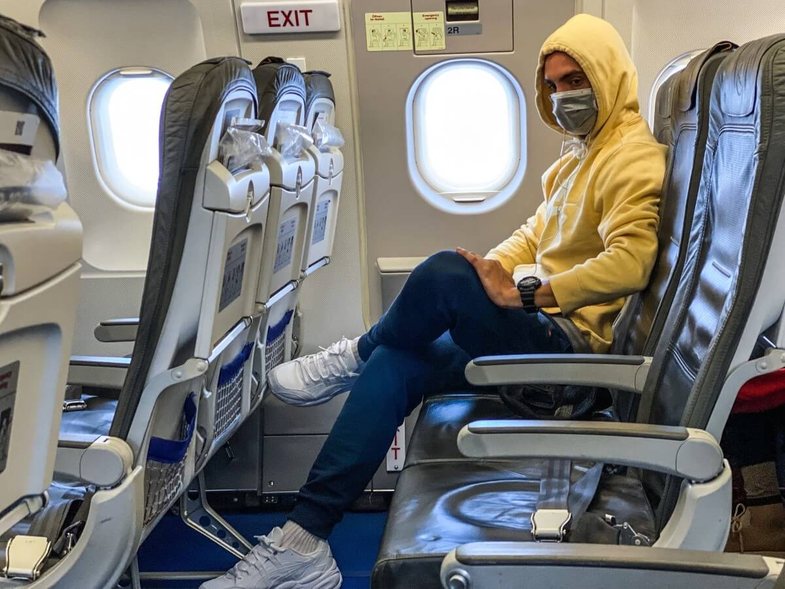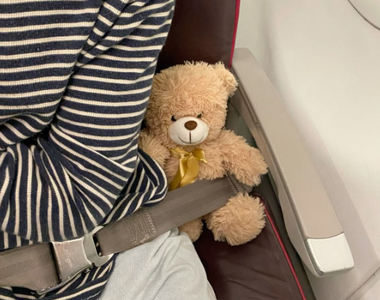
The end of the year is coming fast and people may find themselves in the dilemma between staying home for the winter holidays or visiting a certain place with friends or family against the backdrop of a deadly pandemic.
CNN has conducted a series of interviews with medical experts, to understand how to reduce the risks of a trip and the cases when you should avoid them altogether.
Should you travel for the holidays this year?
"Maybe not, if you are worried you feel insecure or vulnerable," says Dr. Richard Dawood, a specialist in travel medicine.
"However, a trip can be a good choice if you are willing to be careful, follow the rules and easily adapt to the changes in the plan," he said.
Dr. Henry Wu, director of the TravelWell Emory Center and associate professor of infectious diseases at Emory University School of Medicine in Atlanta, says:
"I think the desire to travel at this time should be even higher than before the pandemic. If you decide to travel, try to keep the group small and take precautions, such as wearing a mask and practicing social distance, as well as good hand hygiene. ”
Who should not travel?
People who are particularly vulnerable to serious illness are safer staying home.
"Are you elderly, do you have important chronic diseases?", These are some of the questions you should ask yourself, says Dr. William Schaffner, an infectious disease specialist.
People who are considering meeting relatives or friends who are somewhat more vulnerable for some of the above reasons should think carefully and weigh the importance of their medical condition.
Are some places safer than others?
Of course, places where infections remain low pose a lower risk, although standard precautions are still in place.
The Centers for Disease Control and Prevention reminds people that the risk of infection increases when you travel from or to communities with high numbers and rates of infection.
Does it offer testing protection?
Testimi mund të ndihmojë në kapjen e infeksioneve të koronavirusit para udhëtimit, tha Wu, "por testimi nuk ka efekt mbrojtës apo absolut.”
Një test mund të dalë edhe gabimisht negativ, ndërkohë që ju mund të infektoheni edhe gjatë një udhëtimi dhe të jeni potencial infektimi për të tjerët.
Cila është mënyra më e sigurt për të arritur në destinacion?
“Të ecurit me makinë u jep njerëzve zakonisht më shumë kontroll mbi ndërveprimet e tyre me njerëzit e tjerë”, thonë ekspertët.
"Automjeti juaj, ose një avion privat!" është mënyra më e sigurt për të udhëtuar, thotë Dawood.
(Le të mbetemi te automjeti.)
Minimizimi i kontaktit kur dilni nga makina është thelbësor, thotë Schaffner. Maskohuni kur jeni jashtë automjetit, bëni shumë pak ndalesa, shumë të shkurtra dhe vendosni për ushqimin përpara se të hyni brenda në një restorant.
Me udhëtimet ajrore, "ju jeni më shumë në mëshirë të asaj që po ndodh rreth jush", tha Schaffner.
Megjithatë, mbajtja e maskave, higjiena e mirë e duarve dhe ruajtja e sa më shumë distancës sociale është e rëndësishme kudo.
A duhet të qëndroni me familjarë, të afërm apo miq?
Schaffner i mendon hotelet si vende qëndrimi më të sigurta, sesa shtëpia e një të afërmi, por me kusht që të shmangni takimet në ashensor apo zona të tjera publike, si dhe të shfrytëzoni më shumë opsionin e shërbimit në dhomë.
Kur jeni me shumë familjarë apo miq, duhet të pyesni veten: A ka ndokush në rrezik të lartë për sëmundje të rënda? Çfarë lloje të masave paraprake dhe rreziqeve marrin mysafirët dhe mikpritësit e mi çdo ditë?
Wu nuk ka një përgjigje strikte nëse qëndrimi me miqtë dhe familjen ose në një hotel është më i sigurt.
"A number of factors come into play," he says, "including your ability to distance yourself safely."
For stays in the same house with other people, "consider whether the family you are visiting has been able to isolate themselves and take precautions.
"Large groups, especially if they come from different families or geographical locations, can increase the risk of infection," Wu said.
Much safer option?
“Get a little turkey and stay home,” Schaffner says.
Source: CNN





